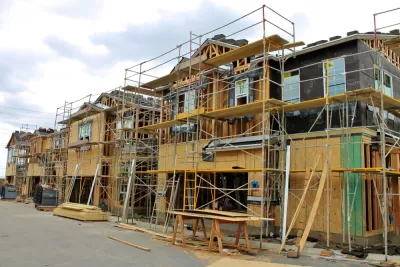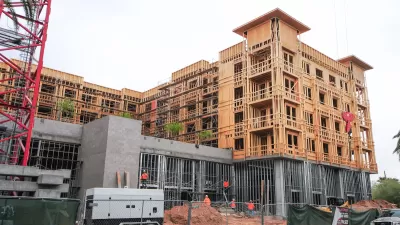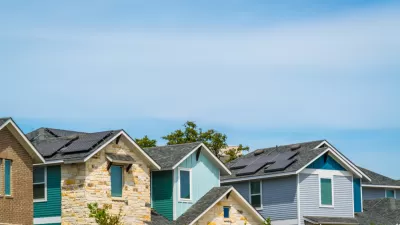Legislators in five U.S. states this year will consider laws that create a state tax incentive program for low-income housing developers.

The lack of affordable housing around the country is inspiring states, namely Iowa, Kansas, Kentucky, North Carolina, and Ohio, to consider new legislation that would create tax breaks for low-income housing developers, according to an article by Kristian Hernández for Pew's Stateline.
"The state programs are designed to supplement the federal Low-Income Housing Tax Credit program, known as LIHTC, which was created in 1986," explains Hernández. These state tax break programs are growing in popularity as more communities around the nation grapple with a lack of housing affordable to lower income households.
"Nationwide, there is a shortage of some 7 million rental homes that are affordable to the lowest income households, according to an annual report released in October by the Public and Affordable Housing Research Corporation and the National Low Income Housing Coalition," writes Hernández. "By 2031 that number could be closer to 8 million, as rent restrictions expire on some 745,000 homes where, because of federal programs, tenants pay less than market rent."
Arizona created its own program in the past year, and legislation in Mississippi came up just short. For insight into the need for a state version of the LIHTC program, the article digs deeper into the Arizona examples, including soundbites from Ruby Dhillon-Williams, assistant deputy director of housing and community development for the Arizona Department of Housing, who says the state has particular need for affordable housing options in rural areas and for rental properties near healthcare facilities.
According to the article, the other 22 states with low-income housing tax credit programs are Arkansas, California, Colorado, Connecticut, D.C., Georgia, Hawaii, Illinois, Maine, Massachusetts, Missouri, Nebraska, Nevada, New Jersey, New Mexico, New York, Oklahoma, Pennsylvania, South Carolina, Utah, Vermont, Virginia and Wisconsin. Among those states, according to Hernández, Colorado has been one of the most successful in leveraging tax breaks for low-income housing development.
More details and background are available in the source article below.
FULL STORY: Here's One Way States Are Boosting Affordable Housing

Alabama: Trump Terminates Settlements for Black Communities Harmed By Raw Sewage
Trump deemed the landmark civil rights agreement “illegal DEI and environmental justice policy.”

Planetizen Federal Action Tracker
A weekly monitor of how Trump’s orders and actions are impacting planners and planning in America.

Why Should We Subsidize Public Transportation?
Many public transit agencies face financial stress due to rising costs, declining fare revenue, and declining subsidies. Transit advocates must provide a strong business case for increasing public transit funding.

Understanding Road Diets
An explainer from Momentum highlights the advantages of reducing vehicle lanes in favor of more bike, transit, and pedestrian infrastructure.

New California Law Regulates Warehouse Pollution
A new law tightens building and emissions regulations for large distribution warehouses to mitigate air pollution and traffic in surrounding communities.

Phoenix Announces Opening Date for Light Rail Extension
The South Central extension will connect South Phoenix to downtown and other major hubs starting on June 7.
Urban Design for Planners 1: Software Tools
This six-course series explores essential urban design concepts using open source software and equips planners with the tools they need to participate fully in the urban design process.
Planning for Universal Design
Learn the tools for implementing Universal Design in planning regulations.
Caltrans
Smith Gee Studio
Institute for Housing and Urban Development Studies (IHS)
City of Grandview
Harvard GSD Executive Education
Toledo-Lucas County Plan Commissions
Salt Lake City
NYU Wagner Graduate School of Public Service





























